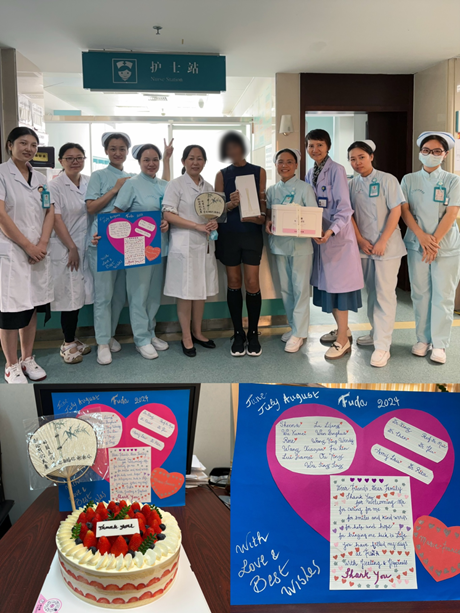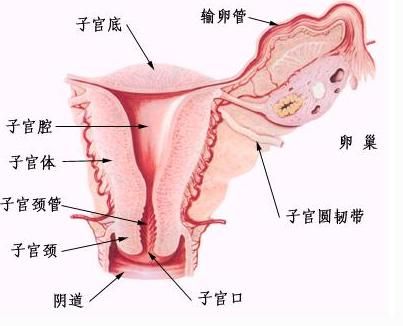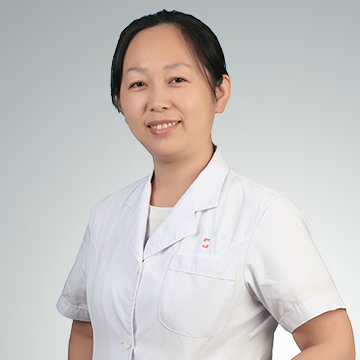As the most common gynecological malignancy, ovarian cancer is notorious for its high mortality and recurrence rates. However, 53-year-old Marie (a pseudonym) has been battling it for 19 years, repeatedly escaping death and now facing the future with renewed confidence.
01 Unable to Escape the "Curse" of Ovarian Cancer Recurrence
Marie, an elegant French woman, always exudes a professional charm despite her modest attire. However, a routine check-up in 2005 delivered a devastating blow: at just 34, she was diagnosed with ovarian cancer. Initially, she underwent surgery and oral estrogen therapy, which controlled the tumor without disrupting her normal life.
But starting in 2009, she experienced six recurrences, underwent four surgeries, and several rounds of chemotherapy. The intervals between recurrences grew shorter, from years to mere months, leaving her in a constant battle. What devastated her most was that in 2023, her condition worsened. During chemotherapy, she developed a severe allergic reaction, forcing her to stop the treatment.
Marie consulted doctors in many Western and South African countries, but none provided a satisfactory solution other than recommending continued chemotherapy, which posed life-threatening risks due to potential complications. As the tumor progressed, her abdomen swelled, her legs became edematous, and abdominal masses appeared, forcing her to rely on traditional Chinese medicine for relief.
02 Fuda’s Combined Treatment Offers New Hope
In June 2024, seeking further treatment, Marie came to China, specifically to Guangzhou Fuda Cancer Hospital. She had heard about this hospital in various places, knowing it was a Chinese national key clinical oncology center with a strong international reputation for tumor cryoablation therapy.
Initially planning to rest at a hotel and visit the hospital the next day, Marie found her legs and abdomen were so swollen that her body had reached its limit. She immediately contacted Fuda’s medical staff and, with the help of Amy, a fellow cancer patient volunteer, was admitted to the hospital’s fourth oncology department. Despite her ascites, severe malnutrition, and anorexia, the calm and meticulous care from the medical team during the examination process eased Marie's anxiety.
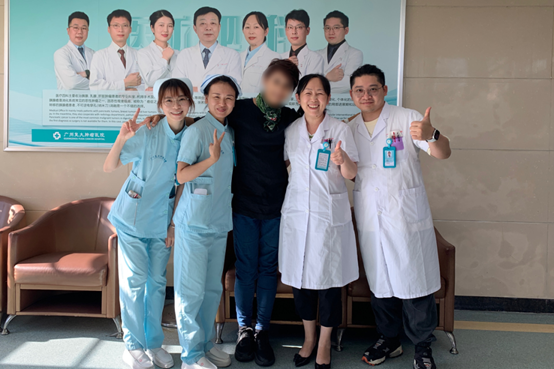
After a comprehensive evaluation, the multidisciplinary team formulated a personalized "combination therapy" plan for her:
1) For Ascites
First, they used abdominal paracentesis to drain the fluid and relieve local symptoms. Additionally, they administered hyperthermic intraperitoneal chemotherapy (HIPEC), which circulates a warmed chemotherapy solution through the abdominal cavity to treat peritoneal metastases and eliminate ascites. The combined effects of heat, perfusion, and medication produced a synergistic result, enhancing the treatment’s effectiveness.
2) For Abdominal Wall Masses
Marie had several solid masses near her abdominal scars, the largest measuring about 15mm x 8mm near her upper abdominal wall scar and another 90mm x 61mm x 36mm near her pubic symphysis scar. Despite previous treatments, including surgery, chemotherapy, and traditional Chinese medicine, her condition continued to progress. The doctors performed a biopsy followed by cryoablation to reduce the tumor burden and improve her quality of life. Postoperative pathology confirmed (abdominal wall) metastatic adenocarcinoma, likely metastasized from her original ovarian serous papillary adenocarcinoma.
3) Systemic Treatment
Examinations revealed that some of Marie’s abdominal and pelvic peritoneal, omental, and mesenteric metastases had grown, and some were adhering to nearby intestines and the right psoas muscle. She then underwent arterial perfusion chemotherapy and targeted therapy to control the tumor’s progression and prolong her life.
After this multidisciplinary and multi-modal treatment, Marie’s ascites significantly decreased, her tumor markers, such as CA-125, were reduced by half, and the size of the high-density mass in her anterior abdominal wall shrank slightly. She has even returned to her status as an exercise enthusiast, going from being unable to walk to walking 4-5 kilometers daily, which came as a delightful surprise.
03 A Different China, A Different Fuda
"My experience in China has been completely different from the negative reports I had heard before." Since her treatment began, Marie had been struggling with hair loss. Upon learning of her concerns, the hospital’s caregivers gave her a stylish haircut, and volunteer Amy gifted her a wig, allowing her to feel beautiful again. Besides the compassionate care, Marie was deeply impressed with the medical expertise, treatment environment, and expert team at Guangzhou Fuda Cancer Hospital. In her view, it was the hospital’s unique technologies and multidisciplinary combination approach that pulled her back from the brink of death.
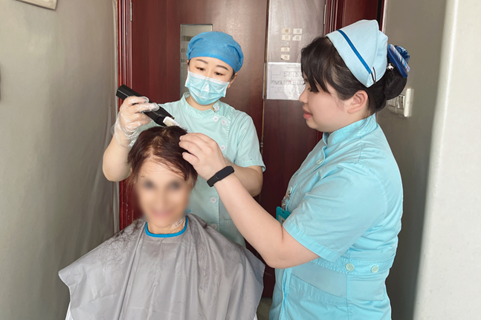
Before being discharged, Marie bought a large cake and went to Yuexiu Park to have a fan painted by a calligraphy master, which she presented to the entire fourth oncology department team to share her joy. She also wrote a thank-you card listing all the names of the medical staff to express her gratitude and the warmth and care this "family" had shown her. Despite knowing that her situation is still challenging, Marie remains hopeful, trusting that Guangzhou Fuda Cancer Hospital can help her live better.
